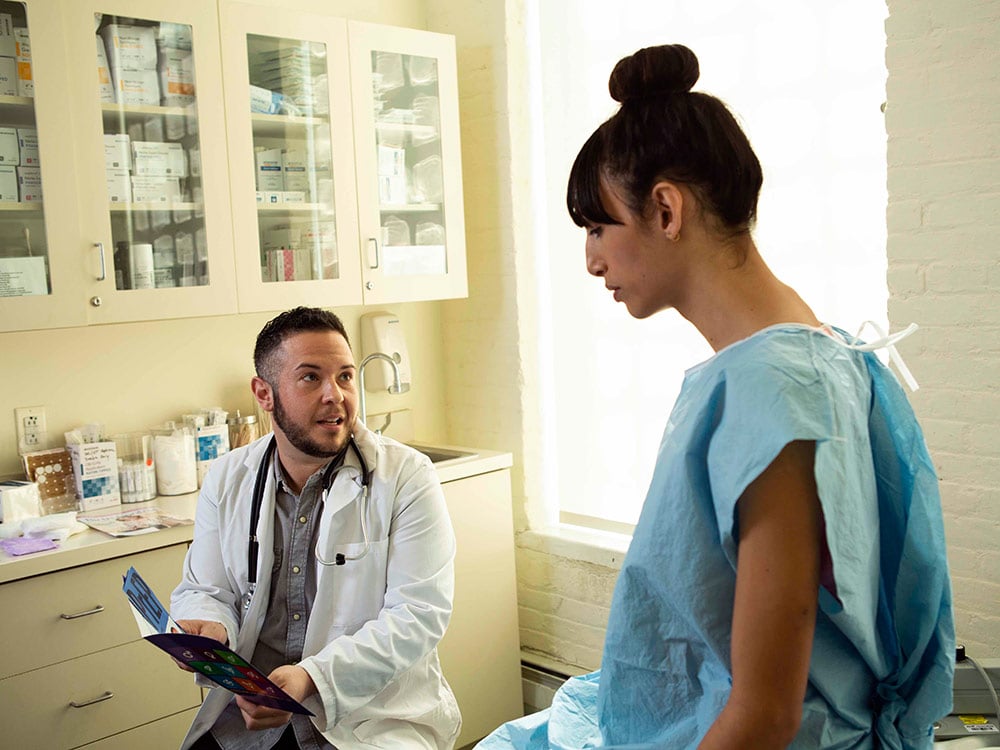Two-Spirit, Indigiqueer, lesbian, gay, bisexual, trans, queer, questioning, intersex and asexual people face unique health challenges and outcomes in Canada.
And the broadest ever health survey in Canada, launched today, is set to uncover the realities and resilience of these communities.
The survey, "Our Health: Canada-wide 2SLGBTQQIA+ Community Study," asks them about their health in more detail than ever before, including how access to housing, employment, substance use, incarceration, ableism, racism, stigma, homophobia and transphobia have affected them.
Run by the Community-Based Research Centre in Vancouver, in collaboration with Egale Canada, the Enchanté Network and 2 Spirits in Motion Society, the survey aims to inform better health policy, education and advocacy for years to come.
“We want to tell the story and the wisdoms that exist in the community that aren’t always listened to in the same way, and support and lift up these voices with data from the study,” said Nathan Lachowsky, who is leading the study as Community-Based Research Centre research director and an associate professor at the University of Victoria.
“And also to reflect the strength of communities and how we have shown up for each other. It’s not just a story of hardship and challenges but of resilience and success.”
In 2019, a federal report titled "The Health of LGBTQIA2 People in Canada" found the country lacked detailed data on health inequities for queer and trans people.
But smaller studies and a B.C.-focused survey have shown that stigma, homophobia and transphobia in health care deter people from seeking essential care, leading to higher rates and more serious cases of chronic illnesses like diabetes.
This discrimination also means LGBTQ2S+ are less likely to have stable housing or employment which support good health, particularly during the pandemic.
Our Health is taking a holistic approach to health, says Lachowsky. Its findings will help ensure diverse LGBTQ2S+ experiences are factored into advocacy and the transformative change that is needed.
The survey hopes to get 10,000 online survey responses, and have 4,000 people complete the at-home COVID-19 testing portion to get a better sense of the pandemic’s specific impacts on the community.
The survey takes about 30 to 60 minutes to complete in either English, French or Spanish, and is open to anyone 15 and older living in Canada.
“We really want to know, ‘Who experienced those challenges and how do we respond as a community?’” Lachowsky said.
The study is overdue, he added, but it was important to do it right and in collaboration with communities themselves.
Since the HIV-AIDS epidemic, the LGBTQ2S+ community has been portrayed by researchers and media as more likely to transmit infectious diseases, Lachowsky said. It has sown deep distrust of government and health care among many who feel blamed for the impacts of discrimination they face, particularly Black and Indigenous people.
Part of making the survey collaborative and comfortable has been input and accountability with a diverse group of community partners including individuals and those from frontline organizations.
Community partner Ryan Khungay, a sessional instructor in social work and equity officer at UVic, says he hopes the survey will help contextualize and validate the diverse experiences of LGBTQ2S+ people instead of homogenizing them.
“Being in spaces that are colonial, there is so much internalized racism and homophobia and transphobia, and a sense of denying one’s experience and denying there’s different experiences within the community,” said Khungay, who is queer, Sikh and South Asian.
“It’s not about pathologizing queerness or transness… because it’s the system itself that is flawed.”
Lachowsky expects to report the findings this fall and to make recommendations from health care and housing to education and where government funding is needed most to make a difference in people’s lives.
“This will build on decades of advocacy from 2SLGBTQQIA+ people for the things we need and the supports that we deserve,” he said. ![]()
Read more: Health, Rights + Justice, Gender + Sexuality
















Tyee Commenting Guidelines
Comments that violate guidelines risk being deleted, and violations may result in a temporary or permanent user ban. Maintain the spirit of good conversation to stay in the discussion.
*Please note The Tyee is not a forum for spreading misinformation about COVID-19, denying its existence or minimizing its risk to public health.
Do:
Do not: